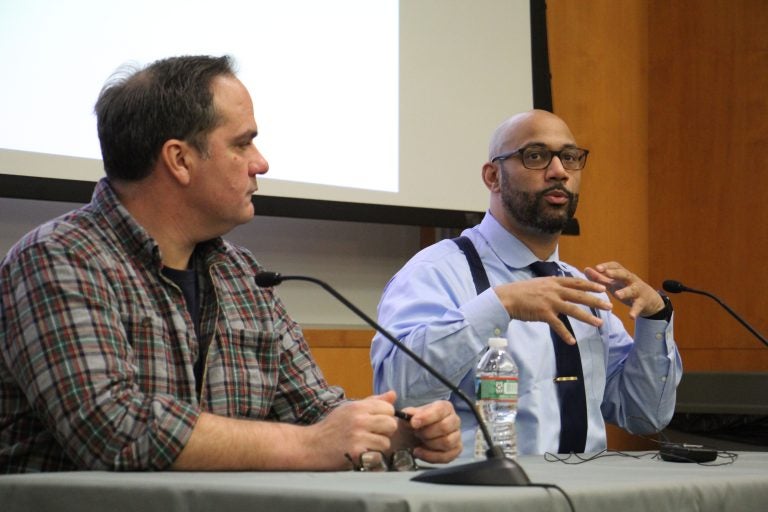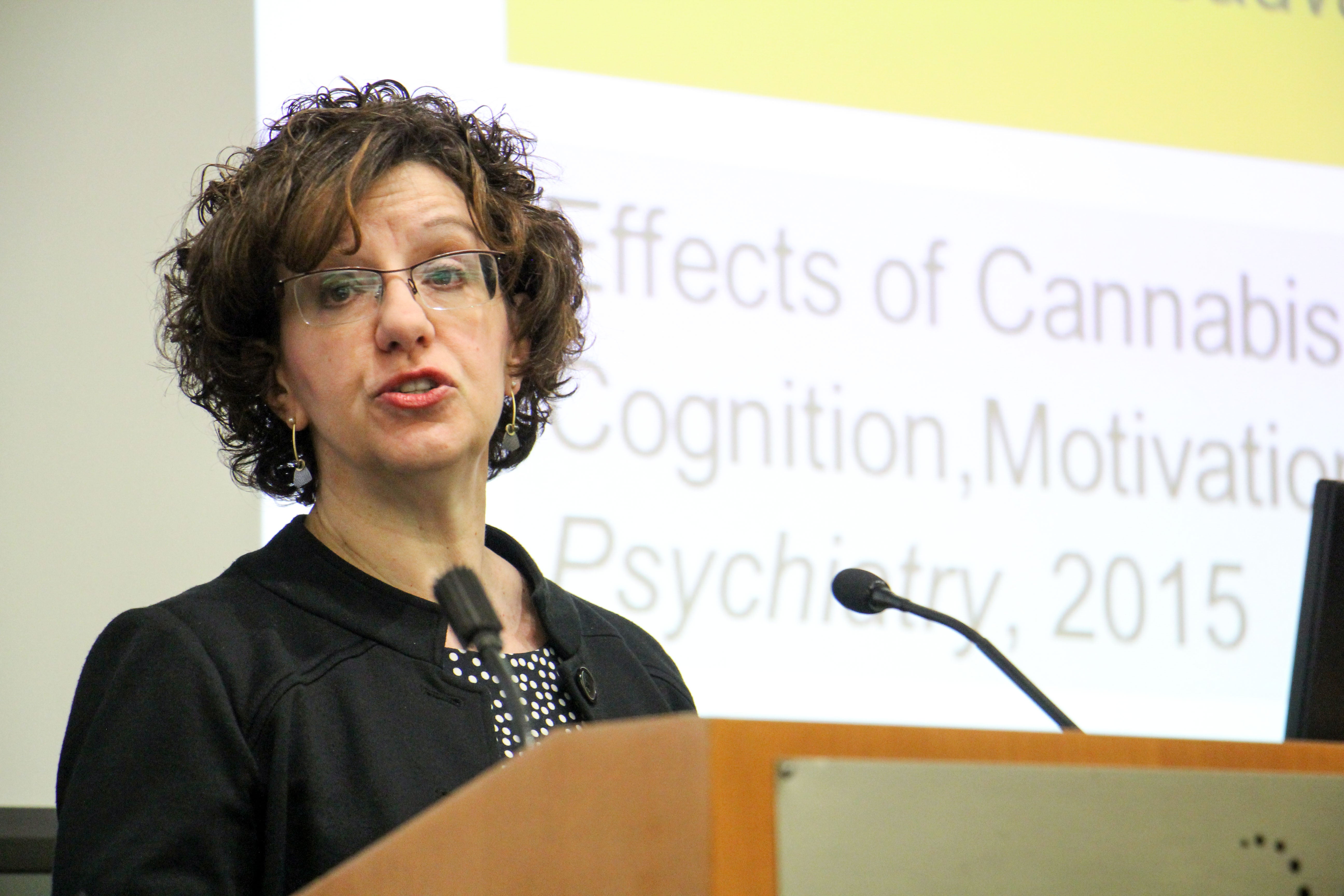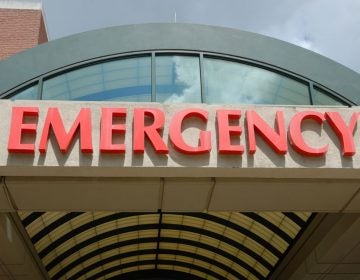USciences event considers marijuana as ‘condom of the opioid crisis’
A discussion at the University of the Sciences in Philadelphia looked at whether medical marijuana has a place in alleviating Pennsylvania’s opioid crisis.

Joe Schrank (left) ,program director of High Sobriety, and Devin Reaves, director of the Pennsylvania Harm Reduction Coalition, answer questions about medical marijuana and opioid addiction during a program at the University of the Sciences. (Emma Lee/WHYY)
With Pennsylvania’s medical marijuana program just getting off the ground, the University of the Sciences in Philadelphia hosted a discussion Thursday night looking at whether pot has a place in alleviating the state’s opioid crisis.
Speakers talked about recent research suggesting that the availability of medical cannabis may help reduce opioid misuse and overdose deaths. The event also explored potential uses of marijuana in harm reduction and addiction treatment, as a safer substitute for drugs such as heroin or prescription painkillers.
Multiple studies have found fewer opioid-related deaths in states that allow legal medical marijuana. The most recent one, which was conducted by the RAND Corporation, found that the type of laws states have passed matters. The reduction was much greater in states that allow dispensaries where patients can buy the drug, as opposed to just letting people grow it on their own.
“The RAND study tells that here in Pennsylvania we may see some benefits,” said Gail Scott, the manager of the Substance Use Disorders Institute at University of the Sciences. “The access is going to be broad. We’re allowing a lot of dispensaries.”

The first dispensaries in the Philadelphia region opened in February, though marijuana outlets across the state have had problems keeping up with demand in the early days of operation.
Scott said Pennsylvania’s law also allows cannabis to be used for a broad range of conditions, including pain. Researchers have suggested that some patients might be substituting medical marijuana for prescription opioids to treat pain, but studies so far haven’t been able to explain the potential benefits.
Devin Reaves, the executive director of the Pennsylvania Harm Reduction Coalition, challenged the strict attitudes of 12-step programs such as Alcoholics Anonymous, which he said still dominate much of the recovery community.
“You are either clean or you’re dirty, you’re either abstinent or you’re not,” Reaves said, describing those attitudes. “That’s a really dangerous way to think about things.”
Reaves said it was time to stop kicking patients out of recovery programs for testing positive for marijuana use, and that pot could even play a role in keeping people off more harmful drugs.
Joe Schrank, the founder of the High Sobriety clinic in Los Angeles, has already put that idea into practice. Patients at the clinic use medically prescribed pot as part of their treatment regimen.
Schrank said allowing people to switch to pot from drugs such as heroin was like promoting safe sex practices during the AIDS epidemic.
“Cannabis is the condom of the opioid crisis,” he said.
Scott said Schrank’s view hasn’t been backed by science, but remained open-minded.
“Is there a place for it for people in recovery? There may be,” Scott said. “I’d like to see more research.”
WHYY is your source for fact-based, in-depth journalism and information. As a nonprofit organization, we rely on financial support from readers like you. Please give today.





